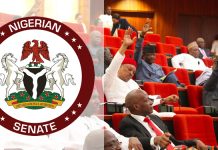In an effort to enforce adherence to current foreign exchange laws, the Central Bank of Nigeria (CBN) has halted licenses for the extension of export earnings repatriation.
This rule applies to both oil and non-oil export transactions and was issued in a circular on January 8, 2025.
W.J. Kanya, Acting Director of the CBN’s Trade and Exchange Department, signed the circular, which cited Memorandum 10A (23a) and Memorandum 10B (20a) in the Foreign Exchange Manual (Revised Edition, March 2018) as the legal foundation for this decision.
The CBN states that exporters are required to closely follow the deadlines for repatriating export revenues, which are 90 days for oil and gas exports and 180 days for non-oil exports from the bill of lading date. These deadlines are non-negotiable, the apex bank insisted.
The Central Bank of Nigeria will no longer grant requests for authorized dealers to extend the repatriation of export revenues on behalf of their clients as of the date of this circular.
For the avoidance of dispute, the circular said that the earnings of oil and non-oil exports must be repatriated and credited into the exporters’ export proceeds domiciliary accounts within 180 and 90 days, respectively, from the bill of lading date.
In order to guarantee adherence to repatriation regulations, this strategy imposes more stringent requirements on exporters and their approved dealer banks.
Banks must enforce conformity to these amended requirements and notify their customers of them.
Additionally, the CBN cautioned that failure to comply may lead to fines or other regulatory measures. This action supports the apex bank’s larger initiatives to boost foreign exchange inflows and fortify Nigeria’s external reserves.
The most recent strategy from the CBN is a continuation of previous efforts to enhance foreign exchange management. The apex bank took action in 2024 that had an impact on foreign oil corporations (IOCs) doing business in Nigeria. These restrictions made it more difficult for IOCs to send all of their foreign parent firms their full forex profits right away.
Rather, IOCs had to repatriate half of their earnings right away, with the other half to be repatriated ninety days following the inflow. Additionally, the CBN established guidelines for IOC cash pooling that require thorough expenditure disclosures prior to pooling and prior approval for repatriation under the cash pooling framework.
According to these regulations, IOCs might sell half of their repatriated profits to approved foreign exchange dealers and use the other half to pay off debts within Nigeria over a period of ninety days.
Read Also: Several injured in Ekiti clash between Okada riders, OPC
The CBN’s resolve to uphold foreign exchange laws and encourage foreign currency inflows is demonstrated by the suspension of repatriation extensions. The CBN seeks to stabilize the naira and increase foreign reserves, both of which are essential for resilience and economic growth, by guaranteeing the prompt repatriation of export earnings.
The CBN’s determination to uphold discipline in foreign exchange management is demonstrated by the increased scrutiny placed on exporters and financial institutions to adhere to these recommendations.
Join Television Nigerian Whatsapp Now
Join Television Nigerian Facebook Now
Join Television Nigerian Twitter Now
Join Television Nigerian YouTUbe Now





